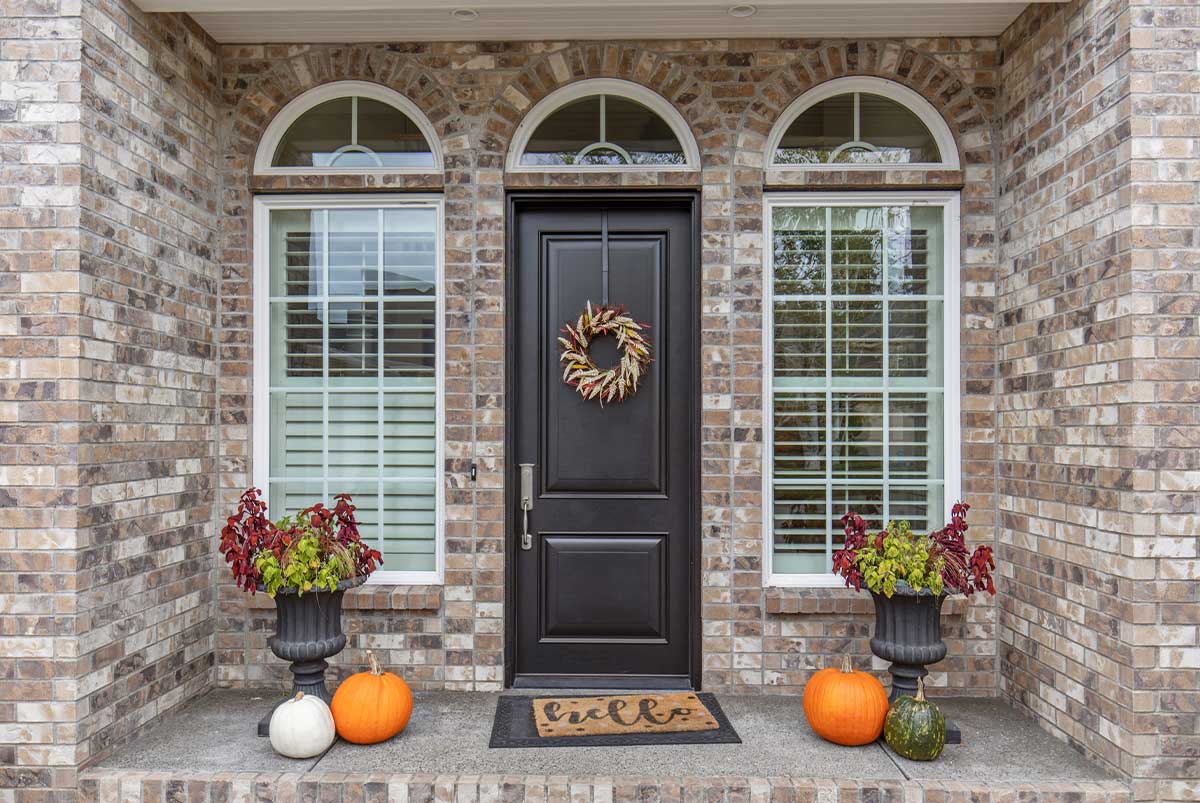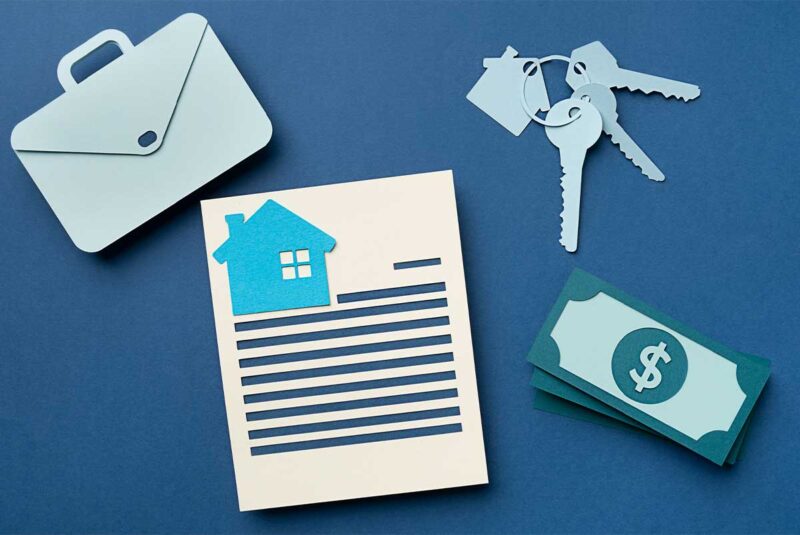Ready To Buy a Home?
Get Approved to Buy a Home
Rocket Mortgage® lets you get to house hunting sooner.
We’d be surprised if you never heard anyone say that a home is the biggest investment you may ever make. It would be surprising given the validity of this widespread notion. Most home buyers begin their real estate journey parting with a sizable chunk of their savings and then taking out a mortgage to pay for the rest.
If you’re in the middle of saving every dollar and cent to buy a home, you’ll want to focus on three major expenses: the down payment, the closing costs and the prepaid costs. All three are common expenses associated with buying a home – but they’re not the same.
Maybe “down payment” and “closing costs” sound familiar, but “prepaid costs” don’t. We can tell you what prepaid costs are and what they mean for the bottom line of the biggest investment you may ever make.
What Are Prepaid Costs?
Sometimes mistakenly referred to as prepaid closing costs, prepaid costs (or prepaids) are upfront expenses home buyers must pay before closing on a home. Prepaids typically include property taxes, homeowners insurance, prorated mortgage interest and any other escrow payments. You’ll usually be informed of your anticipated prepaid costs in your Loan Estimate.
The amount you’ll pay will be based on the cost and payment schedules of your taxes and homeowners insurance.
Lenders require home buyers to prepay certain costs due to the risk associated with missed payments. Unpaid taxes can lead to major trouble like foreclosure and a tax sale. Paying property taxes in advance helps limit any risk to lenders and homeowners. Lenders will almost always require buyers to pay taxes and insurance in advance. Prepaids protect the lender’s investment in the home, but you’ll probably appreciate not having to worry about these bills for the first few months of homeownership.
Remember, prepaid costs aren’t extra expenses. You’ll prepay these upfront costs in addition to your down payment and closing costs.
What Are Some Examples of Prepaid Costs?
When you’re buying a home, you’ll likely encounter prepaid costs. You’ve already gotten a sneak peek, but let’s dive deeper into the most common prepaid costs.
Property taxes
Your property tax bill is based on your home’s value and your municipality’s tax rate. Property taxes are typically paid once or twice per year, but when you’re closing on a home, it is a prepaid expense.
Homeowners insurance
Homeowners insurance is required by most mortgage lenders to protect their investment in your home. In the event of a fire, severe weather damage or another covered claim, your homeowners insurance policy helps cover expensive repairs. Without homeowners insurance, a major disaster can equal unaffordable repairs and even foreclosure, which would spell trouble for you and your lender.
Your lender will usually require homeowners insurance in advance, so you’ll need to provide proof of insurance to your lender at closing. Like property taxes, you’ll typically prepay your insurance premiums every year, keeping you ahead on your payments.
Mortgage interest
It’s routine to pay some mortgage interest in advance. The interest on your mortgage accrues daily from the date of closing until the end of that month. If your home is scheduled to close any day other than the first of the month, you’ll have to prepay some mortgage interest.
Escrow payment at closing
The final prepaid cost you’ll likely encounter is the initial escrow deposit. Not all lenders require an initial escrow deposit, but when they do, it is to create a cushion in your escrow account. The funds will cover the costs of property taxes and homeowners insurance and soften the blow if there are any unexpected cost increases.
How Do You Calculate Prepaid Expenses?
Prepaid costs are relatively easy to calculate.
Property taxes
To calculate your prepaid property taxes, you’ll need to calculate the prorated amount of taxes for the current year. To do this, you’ll need to know the annual property tax amount and the number of days left in the year.
Divide the annual tax amount by 365 and then multiply the result by the number of days left in the year.
For example, if your annual property taxes are $4,000 and there are 120 days left in the year, divide $4,000 by 365. You’ll get $10.96. Multiply $10.96 by 120, and you’ll get a prepay total of $1,315.
Homeowners insurance
Calculating your homeowners insurance is more straightforward. To calculate your prepaid homeowners insurance, you’ll need to know your policy’s annual cost.
If your policy costs $600 per year, you can expect to pay $600 for the first year of homeowners insurance coverage.
Mortgage interest
Assuming you don’t close on the last day of the month, your prepaid mortgage interest will be based on how many days there are between when you close and the end of the month.
You can calculate your daily mortgage interest expense by dividing your annual interest rate by 365 and multiplying the result by the loan amount.
For example, if your mortgage interest rate is 6% and you have a $100,000 loan, your annual prepaid interest expense would be around $6,000. Your daily interest expense would be $16.43 ($6,000 / 365 = $16.43). If there are 10 days left in the month you close, your prorated mortgage interest amount would be about $164.30.
Escrow payment at closing
Once you start making your mortgage payments (and for the life of your mortgage), a portion of your monthly payment will be put into an escrow account to cover property taxes and insurance. This way, you should never fall behind or have to come up with a lump sum to pay your bills.
To make sure you have enough in your account, your lender may ask that you make an initial payment toward your escrow in addition to the payments above.
What’s the Difference Between Prepaid Costs and Closing Costs?
The three biggest expenses you’ll need to prepare for when you’re buying a home are your down payment, prepaid costs and closing costs. It is pretty easy to differentiate the down payment from the other costs, but prepaid costs and closing costs are easy to confuse.
- Down payment: The amount you pay toward the principal purchase price of your home. A minimum amount may be required based on the loan amount and loan type you choose.
- Prepaid costs: Upfront expenses home buyers must pay before closing on a home.
- Closing costs: The fees charged by the lender and other parties involved in the home buying transaction.
You’ll pay both your prepaid costs and your closing costs at closing. Your closing costs are disbursed to their intended recipients at closing. Your prepaid costs may be paid at closing, or they may stay in escrow until their respective bills are due.
While a prepaid expense is any cost you pay in advance, prepaid costs are generally limited to taxes, insurance and mortgage interest. Closing costs are substantially more varied and can include:
- Origination fees
- Discount points
- Lender’s title insurance policy
- Appraisal fee
- Home inspection
- Survey fee
- Recording fees
Ask your lender about both your prepaid costs and your closing costs so you are prepared when it comes time to sign the paperwork and take ownership of your new home.
It’s a Free Ride: You’ve Already Paid
When you’re buying a home, you pay quite a few expenses. Now you know that you may need to pay some of those expenses in advance. Whether you pay upfront or down the line, the truth is that you’ll end up paying these costs at some point in your real estate journey.
Enjoy the peace of mind of knowing that some of your expenses are already taken care of before you sign on the dotted line.
Get approved to buy a home.
Rocket Mortgage® lets you get to house hunting sooner.
The Short Version
- Prepaid costs (or prepaids) are upfront expenses home buyers must pay before closing on a home
- Prepaids typically include property taxes, homeowners insurance and prorated mortgage interest
- You’ll prepay these upfront costs in addition to your down payment and closing costs




